Every Episode of Doctor Who Series 4 Ranked From Worst to Best
- Oops!Something went wrong.Please try again later.
- Oops!Something went wrong.Please try again later.
- Oops!Something went wrong.Please try again later.
Tennant’s third and final full series as the Doctor was a roaring success on all fronts. Not only was the writing and Tennant’s performances in the role stronger than ever but he was backed up by Catherine Tate as Donna Noble, whose run in this series would make her one of the most beloved companions of all time.
It’s no surprise that 15 years later when the BBC wanted some nostalgia for the 60th anniversary, they picked Tennant and Tate as the pair to bring back.
With such a stellar series, it was hard to put this list together, but we’ve gone through and ranked ever episode in Series 4 from worst to best.
The Doctor’s Daughter
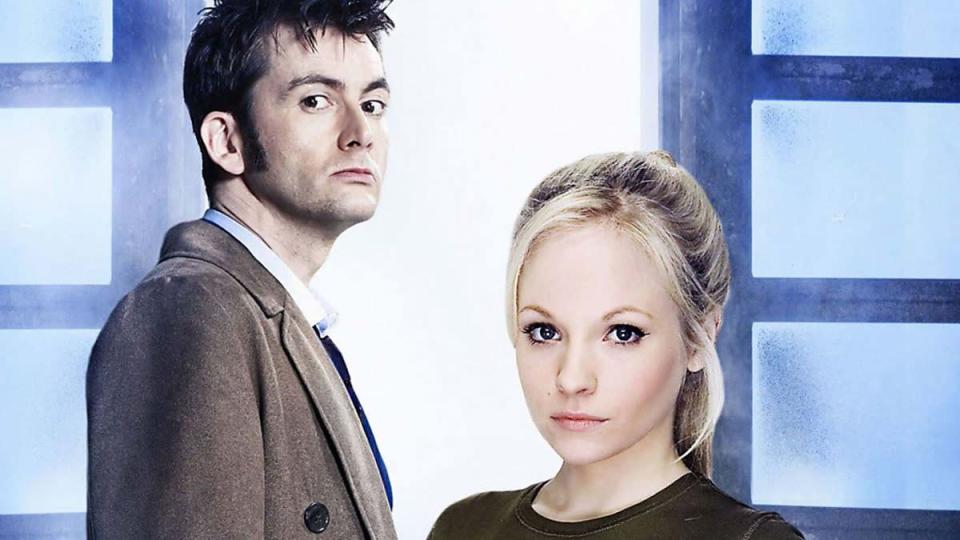
BBC
This episode is so forgettable that the only thing everyone mentions about it doesn’t actually have anything to do with the episode. That being that the actress who played the Doctor’s daughter in this episode would end up becoming David Tennant’s wife, which is very cute.
Still, the story isn’t anything worth shouting about. Martha is there for no real reason and gets sidelined for most of the story as a result, and as far as the relationship between the Doctor and Jenny goes, it’s pretty by the numbers. They start out at odds but slowly learn to love each other until she’s killed at the end.
There are no layers to it, the war between humans and hath is a weak plot, and the twist at the end isn’t as clever as it thinks it is.
The Sontaran Stratagem & The Poison Sky
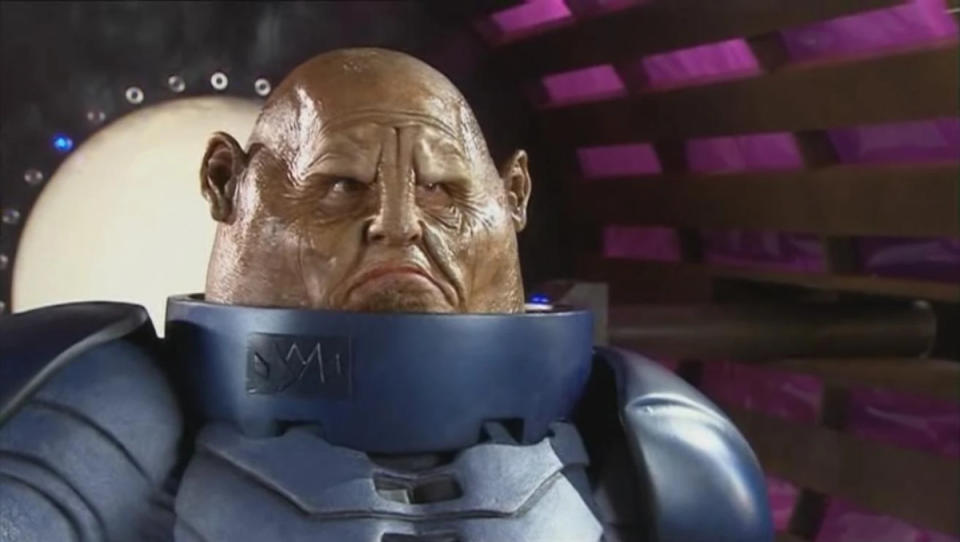
BBC
Here we run into the problem with ranking Series 4, because this is a pretty fun story, but it’s second to last in the ranking because of how amazing everything else is.
I question why Martha was brought back at all given that she was almost a complete non-factor in every story she appears in this series, but this one definitely gives her the best treatment out of all of them. Here she actually gets a few scenes with the Doctor before she’s sidelined for plot reasons.
We get a bit more of Donna’s home life which is always a plus, as any appearance of Wilf is, and the adventure keeps moving at a brisk pace. The second half isn’t quite as strong as the setup, and the lengths to which UNIT ignores the Doctor reaches a ridiculous point, but those are small aspects of a story with many moving parts that may not be anything special, but always put a smile on my face.
The Unicorn and the Wasp
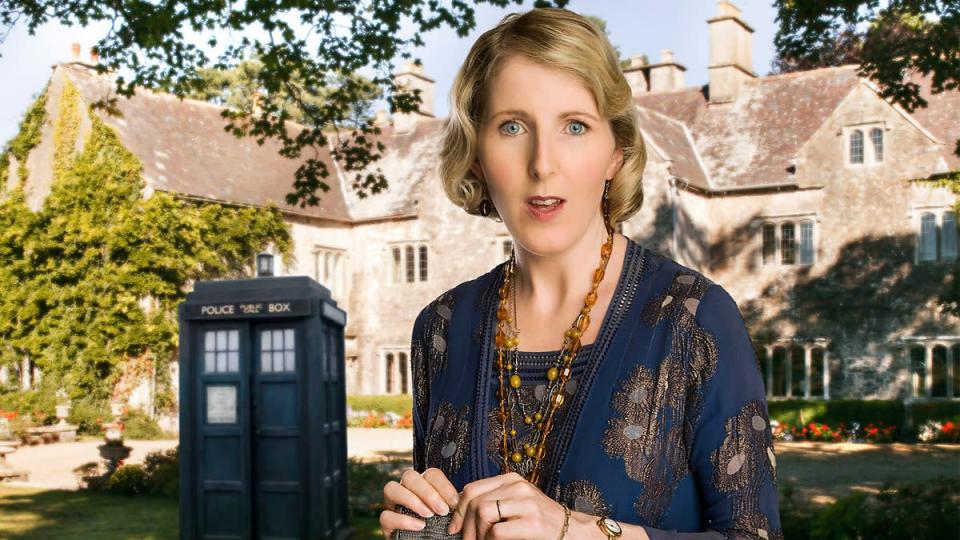
BBC
Every time I rewatch this episode I like it a little bit more. The premise of Agatha Christie in a murder mystery is exactly the silly idea that Doctor Who thrives on, and while a giant wasp isn’t the most compelling villain, it unfolds beautifully.
Using the structure of a murder mystery means we get to keep jumping between lighthearted scenes with an occasional bit of action to break it up. The Doctor interrogating everyone while the visual show that they’re lying through their teeth is a hilarious scene, topped only by the cyanide scene. “How is Harvey Wallbanger one word?!” is the kind of line that will live rent-free in my head forever.
The resolution misses the mark a little, landing on the melodramatic side, but it serves as a good enough wrap-up to the adventure and plays with a little bit of real mystery from Christie’s life.
The Fires of Pompeii
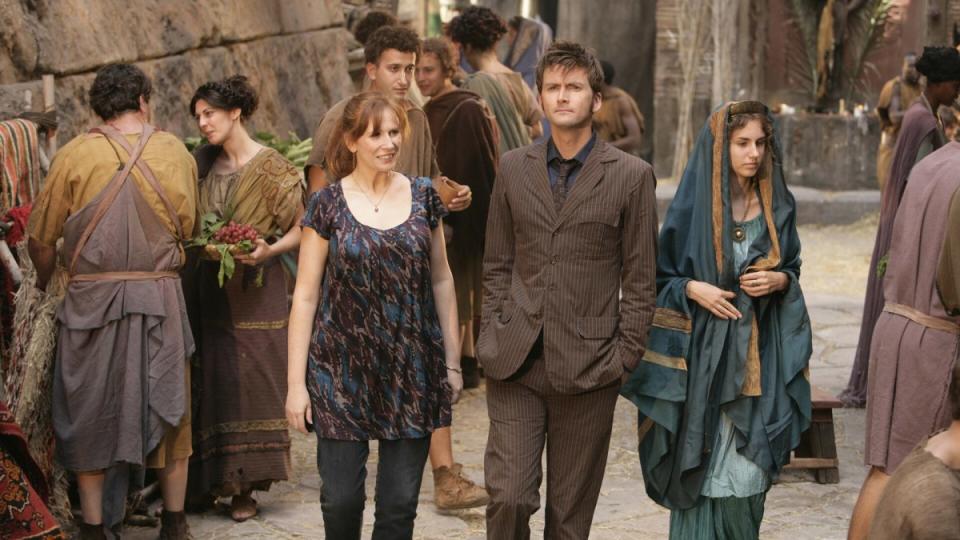
BBC
This is an episode mostly remembered for one moment, and it’s a good job that it’s such a great moment, because the rest of the episode doesn’t really live up to it. The whole plot surrounding the soothsayers and the Pyroviles doesn’t have much of interest to offer. The giant fire monsters never actually get to do anything (I suspect for CGI budget reasons) and aside from Peter Capaldi, the secondary cast isn’t especially endearing.
However, the conflict between the Doctor and Donna that simmers for the whole episode is fantastic. Our natural instinct is always to side with the Doctor because he’s the hyper-intelligent time-traveling alien who’s strictly speaking correct about not changing history. Except, deep down I think we all know that in that scenario, we’d be Donna, trying to get people out of the city we know is going to be buried in volcanic ash in a few hours.
The fact that eventually, Donna convinces him to save just one family may not immediately feel like a good enough compromise, but the Doctor has always promoted how one person can change the course of history, and it shows how Donna makes him a better person.
Planet of the Ood
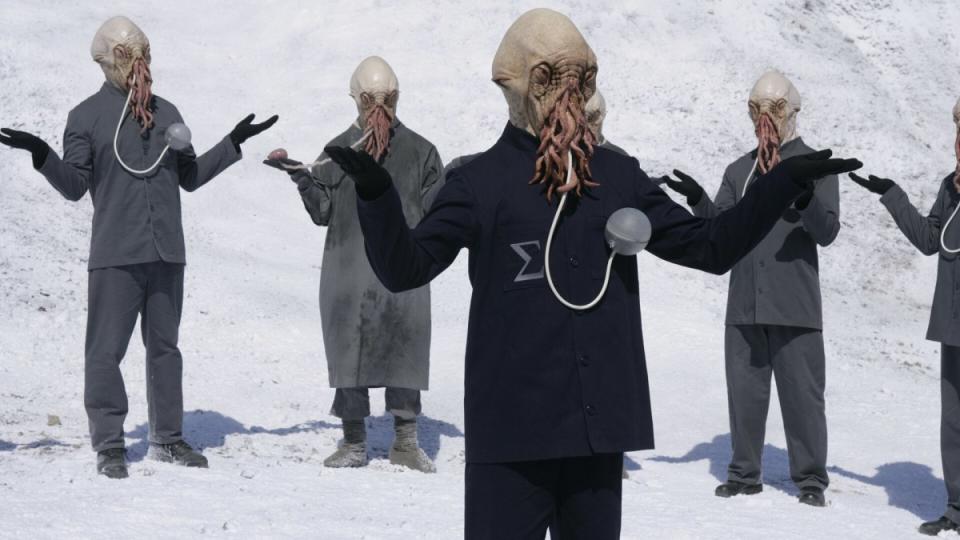
BBC
Like Fires in Pompeii, this is an episode with multiple weaker elements but is saved by a few great threads. This episode often drifts a little too far into the goofy side of comedy, with many of the secondary characters devolving into one-note roles very quickly when they really didn’t need to.
Still, the core plot of the Ood being freed is good, and something that really needed to be addressed after the idea of a “basic slave race” alien went almost completely unchallenged in their first appearance. It makes for a story that is perhaps a bit tonally inconsistent, but it pulls it off when it really matters.
Partners in Crime
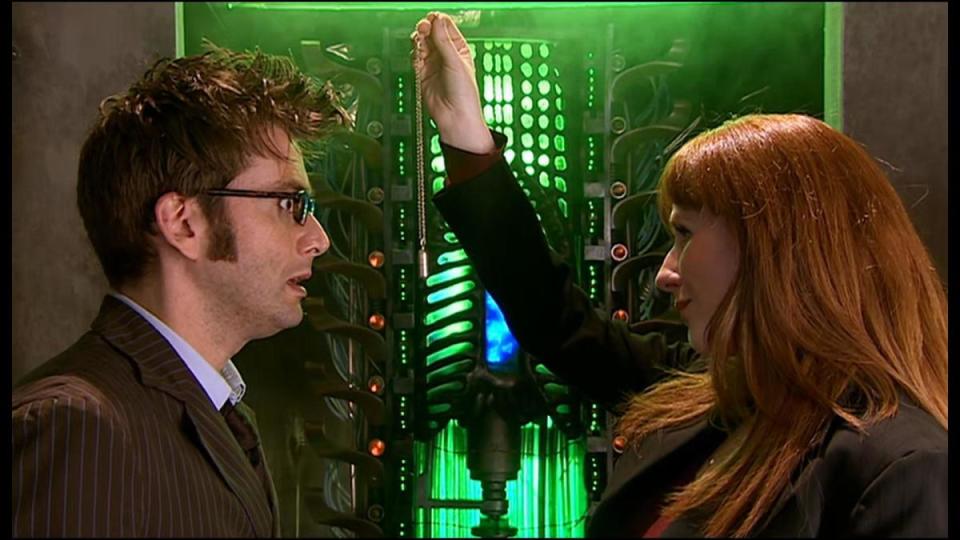
BBC
This is another banger of a series opener. We get to have fun for the first little while as the Doctor and Donna comically keep missing each other, to the point where we barely even notice all the exposition being set up surrounding Adipose Industries.
The Adipose themselves are a great design because they’re so unnerving. They present as cute baby-like creatures, as yet they have this weird fatty skin texture and make strange plopping noises as they walk. It’s offputting in exactly the right way.
It goes for a lightning-quick pace as well, which mixes perfectly with the comedic tone. We all know the scene of the Doctor and Donna mouthing across a room is legendary, and when that finally gives way to a big run-around adventure it gets you pumped for more to come.
The Stolen Earth & Journey’s End
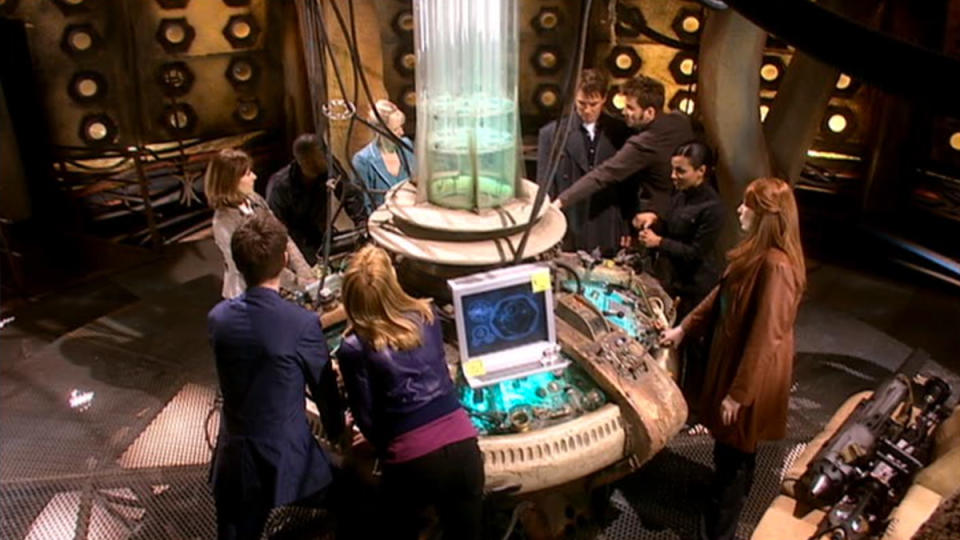
BBC
This is where ranking Series 4 gets really difficult. The back half of this series is all-time great episode after all-time great episode, and putting them in any kind of order is a tall task.
What makes this finale so great is self-evident. Getting every major companion from the Doctor Who revival up until that point in one story was always going to be brilliant. If you watched the show actively in this era then you’ll likely have fond memories of watching the Sarah-Jane Adventures and/or Torchwood alongside it, and here we Whovians have our Endgame event just as the MCU began.
The overall plot with the Daleks isn’t anything super special, but that doesn’t matter so much as it serves merely as a vehicle to get all our favorite characters in the same room, giving us great moments between all of them that cap off many of their arcs.
Turn Left
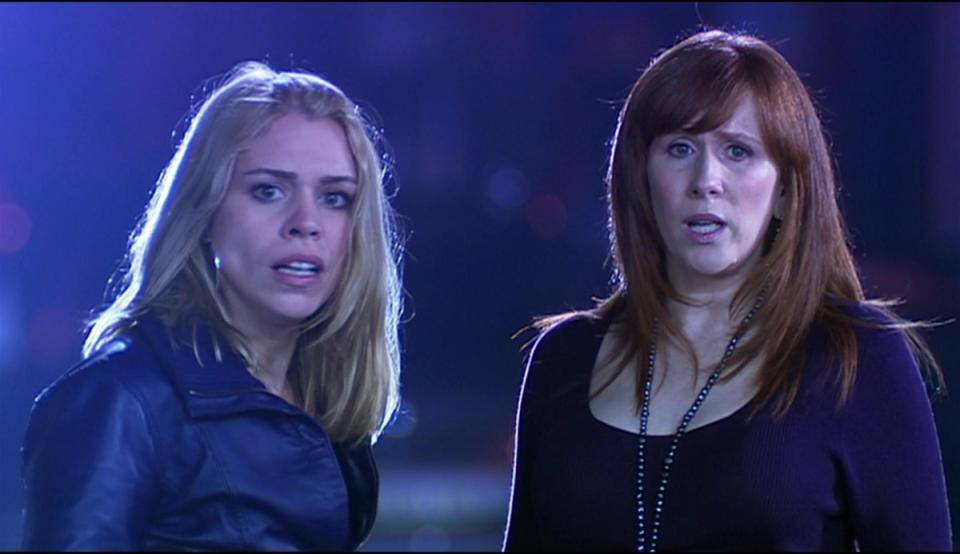
BBC
Turns out it wasn’t just Endgame the MCU stole, but What If as well. With Donna having become such an integral part of this phase of the Doctor’s life, it was a wild ride to see what would’ve happened if they’d never met and he died as a result.
Watching the world go to hell without the Doctor is terrifying to see and Donna’s reaction to it is such a wonderful study into her character, and how her time in the TARDIS changed her. It feels almost like a sleight of hand trick, where we get pulled in by focusing on all the events of series 3 and 4 as they affect the real world, but while we’re there get hit with deeply emotional character work with all the Noble family.
The scene where this version of Donna sacrifices herself for another gets most of the credit for its emotionality, but some of the other stuff hits extremely heavy. Wilf is easily one of the best characters in the show’s history and this episode is a great showcase of that with the way he drives home both the funniest and most upsetting moments of the episode. Even Sylia’s “nagging mother” facade falls away for a scene that is heartbreaking in so many different ways.
What it lacks in exciting action, it makes up for in careful consideration of the state of this world, and the three people we follow through it.
Silence in the Library & Forest of the Dead
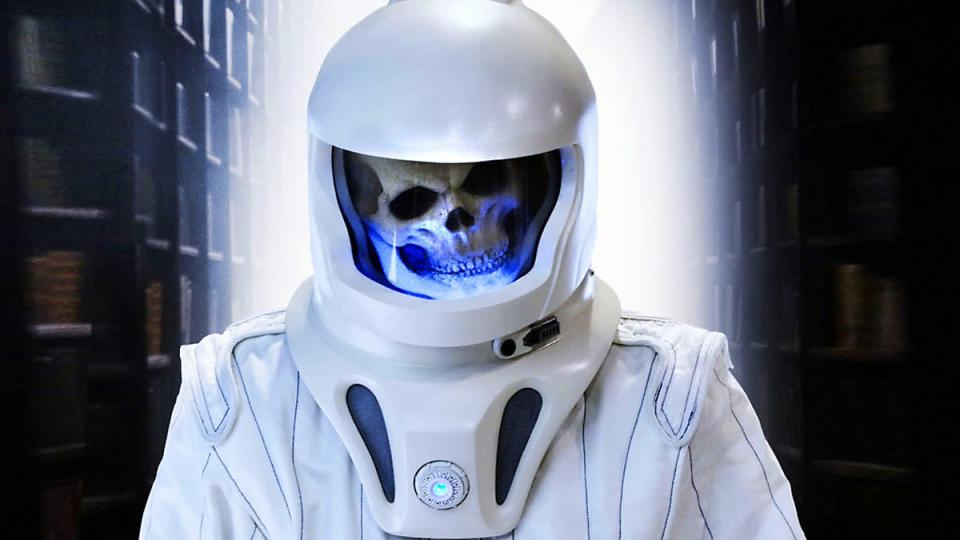
BBC
If I were to show someone an episode that encapsulated everything that makes Doctor Who brilliant, I think this would be the story I’d pick. It has a well-plotted mystery, tense action, fantastic character moments, and some timey-wimey shenanigans.
Even though Moffat wouldn’t take over as Doctor Who’s showrunner for over a year, it was a genius move on his part to start setting up his major plot threads here. River Song is one of the most interesting characters in the show very much because of how this episode established her as this enigma of a person. What’s arguably more impressive is that watching it with the knowledge of everything that was to come with this character makes this first appearance all the more impactful on a rewatch.
Then you have the episode's main plot which does what Doctor Who does best, taking a totally ordinary thing and making it deadly – in this case, shadows. Since shadows are everywhere it leaves an air of tension hovering over every scene, especially as we’re almost immediately greeted by a big group of future corpses that we all know will picked off one by one as the adventure unfolds.
It has moments of tension, excitement, confusion, genius, and wonder all wrapped up in a tight two-part story that could reasonably be described as flawless – and yet it’s only the second-best episode in this series.
Midnight
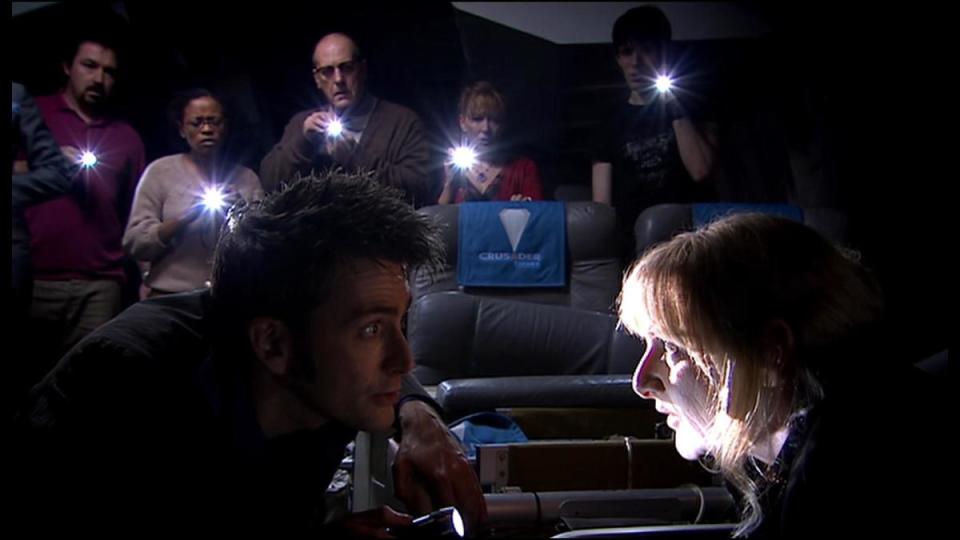
BBC
While picking the order of the rest of the top 4 was difficult, I knew from moment one that Midnight was going to be top of this list. To be quite plain, I think it is the best 45 minutes of television ever produced.
The core concept is so many layers of genius. A completely unknown creature possesses someone and they just…copy people’s speech. It’s childish, silly, and annoying, yet in this context, it’s absolutely terrifying. Despite such a simple concept it manages to keep shocking you with twists as it starts to copy only the Doctor, then speak in tandem with him, and eventually starts speaking first.
The next layer is how it turns the Doctor’s greatest weapon – his words – against him. He’s the man who can waltz into any situation, charm everyone, and completely take charge of the room. Yet here, not only is that what makes the monster stronger, but it ends up working against him as all the terrified holiday-goers trapped with him grow to distrust his confidence.
Speaking of, the thing that I find so utterly gripping about this episode is how all of these normal people start to turn into genuinely terrible monsters as fear warps their minds. It’s not like there’s any supernatural force affecting them either, these are just normal pleasant people trapped in a terrifying situation and it slowly drives them to do terrible things.
It’s upsettingly real. I honestly don’t know how I’d cope in a situation like that. For all I know, I would be no different to any of these people, saying and doing horrible things because I just want it to be over and to be safe. It’s such a harrowing sense of uncertainty that makes me feel so uncomfortable in the most brilliant way.

